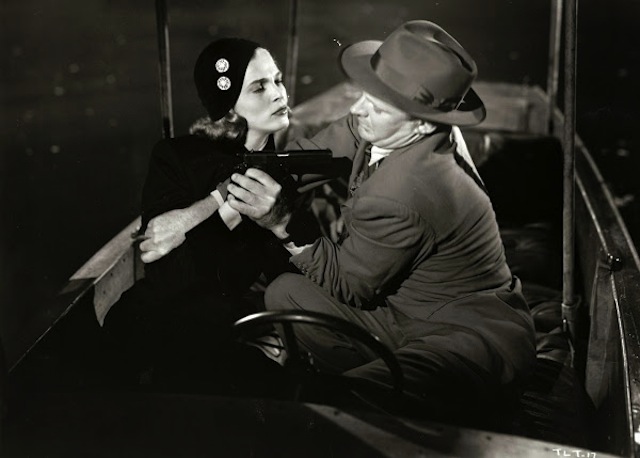Noir City Goes Global At The Music Box
By Staff in Arts & Entertainment on Aug 18, 2014 4:00PM

Still from 'Too Late For Tears.' Image in public domain.
Grab your trench coat and fedora. The Noir City Film Festival returns to the Music Box Theatre Aug. 29 through Sept. 4 for the sixth Chicago edition of the series devoted to the cinema of shadows, fatalism, femme fatales and violence.
Though the phrase “film noir” originated with French critics, it’s usually applied to a particular breed of post-World War II American films. But the style and themes of film noir have been practiced around the globe, so this year the festival adds movies from France, Japan, Argentina, Spain and Italy to the mix, along with some Hollywood gems and semi-obscurities.
Classic foreign films showing include Pepe le Moko (1937) with legendary French star Jean Gabin; the famed French heist film Rififi (1955), directed by the gifted American expat Jules Dassin; and two from Japan’s best-known director, Akira Kurosawa: Drunken Angel (1948) and Stray Dog (1949).
The line between “moody” and full-on noir is debated constantly, and that argument often comes into play with another acclaimed foreign film showing, Luchino Visconti’s Ossessione (1943). Celebrated as a touchstone of Italian neorealism, it’s based on James Cain’s crime novel classic, The Postman Always Rings Twice, and certainly has enough noir qualities to earn a spot in this festival.
Less widely shown international offerings include movies from Spain (1955’s Death of a Cyclist); France (1947’s Quai des Orfevres, from the director of Diabolique, and 1959’s Two Men in Manhattan, from the director of Le Samurai); and Argentina (1949’s Hardly a Criminal and 1953’s The Black Vampire, described as a feminist twist on Fritz Lang’s M). The Black Vampire will show the same day as Joseph Losey’s 1951 Americanization of M—a remake with fairly strong critical support.
If you prefer your noir Yankee-style, the series has you covered with a restored 35mm print of Too Late for Tears (1949), a newly struck 35mm print of Roadblock (1951), Joan Fontaine and Robert Ryan in Nicholas Ray’s Born to Be Bad (1950), Caged (1950), Tension (1949) and James Mason in One Way Street (1950).
Programmed by the Film Noir Foundation, with a flagship festival in San Francisco, Noir City now has editions in Seattle, Portland, Los Angeles, Austin and Washington, D.C., as well as here in Chicago. See the full schedule for Noir City Chicago 6 here.
By: Joel Wicklund